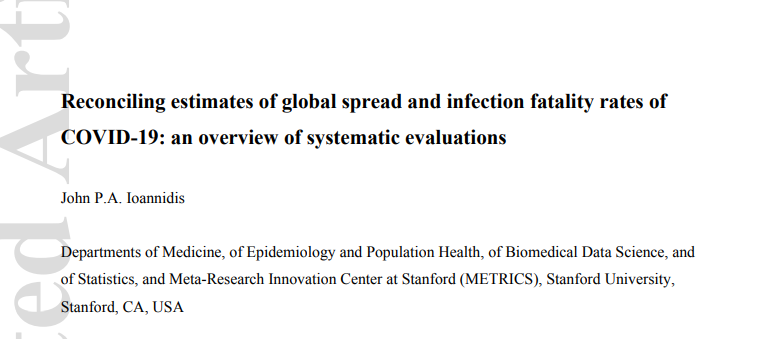
Fascinating study demonstrating the issues with selection bias in seroprevalence estimates
Using a selected sample of participants, the estimated prevalence of past COVID-19 infection doubled (!) nature.com/articles/s4146…
Using a selected sample of participants, the estimated prevalence of past COVID-19 infection doubled (!) nature.com/articles/s4146…

The study is really interesting. They used an existing representative sample of people aged >30 to estimate the population prevalence of antibodies to SARS-CoV-2 

They then added a second group. These were people who had not previously signed up to the existing cohort, but were eligible 

Even more interesting, this difference did not disappear even when adjusting for age, sex, or reported past symptoms of COVID-19
The only major difference between the groups? Thinking you'd been exposed to COVID-19 in the past
The only major difference between the groups? Thinking you'd been exposed to COVID-19 in the past

Two take-homes:
1. Selection bias is a big problem
2. Adjusting for demographics and symptoms may not be adequate to correct for this bias
1. Selection bias is a big problem
2. Adjusting for demographics and symptoms may not be adequate to correct for this bias
What this means is that if you recruit people to a seroprevalence study in a biased way (say, by telling them that they can go back to normal life if they get a positive result), you might end up with a massively inflated estimate
This is important in IFR calculations
If we used the representative sample, we get an IFR of ~0.8%
Using the biased sample, it's halved to ~0.4%
Big difference!
If we used the representative sample, we get an IFR of ~0.8%
Using the biased sample, it's halved to ~0.4%
Big difference!
Thanks @MikeDeeeeeee for pointing out the research
• • •
Missing some Tweet in this thread? You can try to
force a refresh








